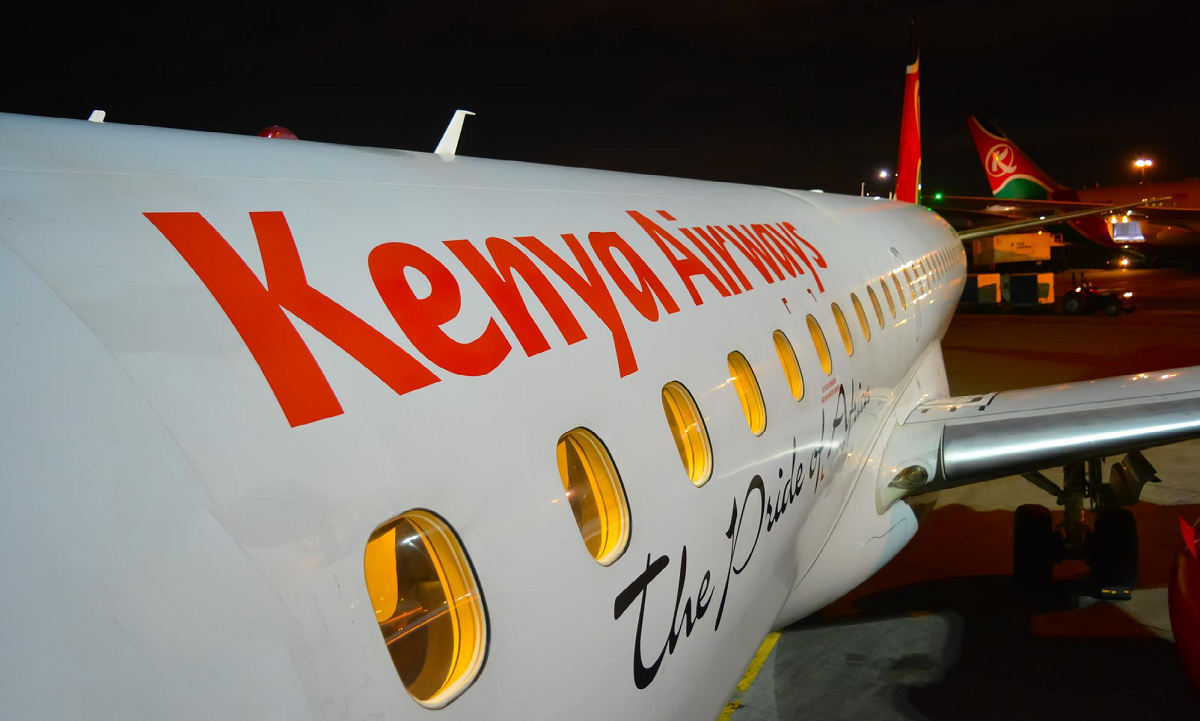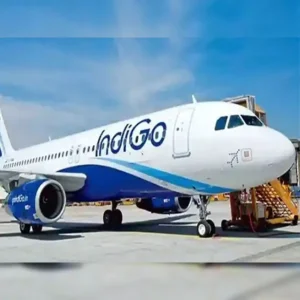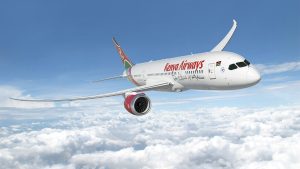Kenya Airways will service Nairobi to New York JFK 1x daily next summer, although much could change by then. It comes soon after the SkyTeam airline expanded its codeshare destinations with Delta, although the additions will have relatively little impact on passenger traffic. JFK-Nairobi uses B787-8s and is at the limit of the variant’s real-world range, with what seems to be a payload restriction to the USA.
What’s happening?
According to Kenya Airways’ booking engine, the carrier will grow JFK service to 1x daily from June 19th next year. While the 7,360-mile (11,844km) route currently operates 3x weekly, OAG shows that it was due to be 5x weekly next summer. 1x daily is a significant frequency on the route, although it’ll only be during the summer peak. It is scheduled as follows, with all times local:
- Nairobi to JFK: KQ2, 23:35-07:35+1 (15h block time)
- JFK to Nairobi: KQ3, 13:45-10:30+1 (13h 45m)
The African carrier has one widebody type: the B787-8. It has nine of them, each with 234 seats. They have the same config: 30 fully flat business seats and 204 seats in economy. Just 13% of its seats are premium, not much for the cabin that makes a crucial difference in long-haul route performance.
A prestige route
The very long route to JFK is undoubtedly for prestige reasons, as well as helping to grow Kenya tourism, and is heavily loss-making. Six months after the route began, Kenya Airways’ former CEO, Sebastian Mikos, said that:
“I do not consider it to be a lucrative route. There is nothing lucrative about flying to New York.”
He added that JFK is “necessary but difficult,” mainly for passenger feed reasons and to be ‘seen’ differently. The launch of JFK in October 2018 came amid a cost-cutting and rationalization program in an attempt to stave off bankruptcy, further emphasizing the route’s non-commercial objectives.
Yes, all hub-feeding airlines have loss-making routes in themselves, which wouldn’t, or shouldn’t, be operated if only about that one route, but they make a significant network contribution. Booking data shows that approximately 35% of Kenya Airways’ JFK passengers transited Nairobi in 2019. Does that justify service, especially given the carrier’s perennial on-the-brink-of-bankruptcy position?
A 76.5% seat load factor
According to the US Department of Transportation, Kenya Airways’ JFK service achieved a seat load factor (SLF) of 76.5% in 2019, with 104,544 passengers carried. (Remember, SLF is just one element of performance.) The pandemic meant it fell to 23,240 passengers (65.6%) in 2020 and 31,758 last year (63.4%).
Analyzing booking data shows that approximately 36% of passengers were point-to-point; they only traveled between JFK and Nairobi. A further 35% transited over Nairobi to other destinations, with the top five Kilimanjaro, Lagos (really!), Entebbe, Johannesburg, and Cape Town. Some 19% of passengers connected to partners over JFK, and about 9% ‘bridged’ both JFK and Nairobi. In all, nearly two-thirds of passengers transited.
Source: Simple Flying






